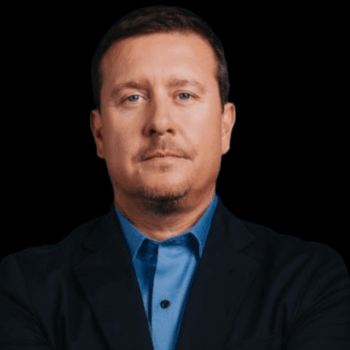Jill Escher didn’t seek out the autism world. It came to her like a meteor in 2001, when her two-and-a-half-year-old son was diagnosed with severe autism. Then her daughter followed, six years later. Both are nonverbal. Neither can read, write, or perform basic tasks expected even of toddlers. Their condition is not the so-called “quirky genius” type often portrayed in the media. It is profound disability.
Escher, now head of the National Council on Severe Autism, has become a fierce critic of how autism is perceived, researched, and accommodated in public systems. She calls today’s romanticization of autism “a death loop of denial.”
She’s not buying the fashionable rhetoric of “neurodiversity”. She sees soaring rates of real, incapacitating autism and a system utterly unprepared.
California’s data shocked her. In the 1980s, only a few hundred people with autism were served by state systems. Today, more than 202,000 are. And that number, she states, excludes high-functioning cases. Similar spikes are seen nationwide. She disputes the theory that this is all due to better diagnosis or diagnostic substitution of intellectual disability. “That’s flat wrong,” she says. “Intellectual Disability (ID) rates are stable or rising slightly. Autism rates are exploding.”
The increase spans all levels—severe, moderate, and mild. She bristles at suggestions that schools and families are gaming the system for benefits. “I’ve met hundreds of families desperate to avoid an autism diagnosis,” she says. “SSI applications get routinely denied even for clearly disabled kids.”
Once children age out of the IDEA school protections at 21, they often “fall off a cliff”—into underfunded, fragmented adult systems dependent on Medicaid and sparse housing subsidies. Escher calls the system “irrational,” built for a different era before the autism surge.
She’s less interested in blame than in science. She does not support the vaccine hypothesis, calling it a distraction. Instead, she points to a newer theory: non-genetic inheritance. That includes epigenetic changes to egg and sperm cells, potentially resulting from exposures such as anesthetics or medications like Depakote—animal studies support this. Human research lags badly.
Autism isn’t just genetic, she insists. It’s heritable, but what we inherit can come from environmental signals written into germ cells.
Escher’s message: the crisis is real. The data are indisputable. Our systems, our language, our science—they are failing. And while ideology tiptoes, families collapse under the weight of the burden.
She demands hard questions, sharp clarity, and scientific rigor. “Stop patting ourselves on the back,” she says. “We don’t know what autism is, and it’s costing us everything.”
Join us at 5 pm ET weekdays on America Out Loud Talk Radio. Listen on iHeart Radio, our world-class media player, or our free apps on Apple, Android, or Alexa. Discover all the episodes on podcast networks, i.e., Apple Podcasts, Spotify, Pandora, TuneIn, Stitcher, and iHeart. You’ll find them the day after they air on talk radio, available on podcast. Extraordinary voices for extraordinary times.
Image: Combination jillescher.com and ncsautism.org
Discover more from Randy Bock MD PC
Subscribe to get the latest posts sent to your email.

























